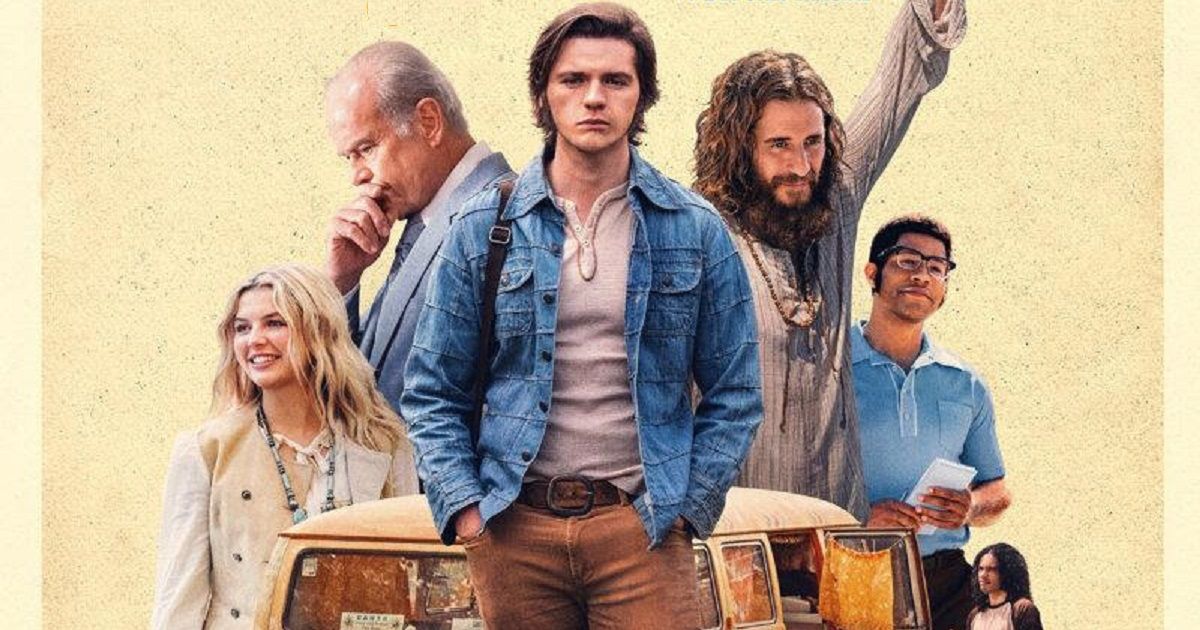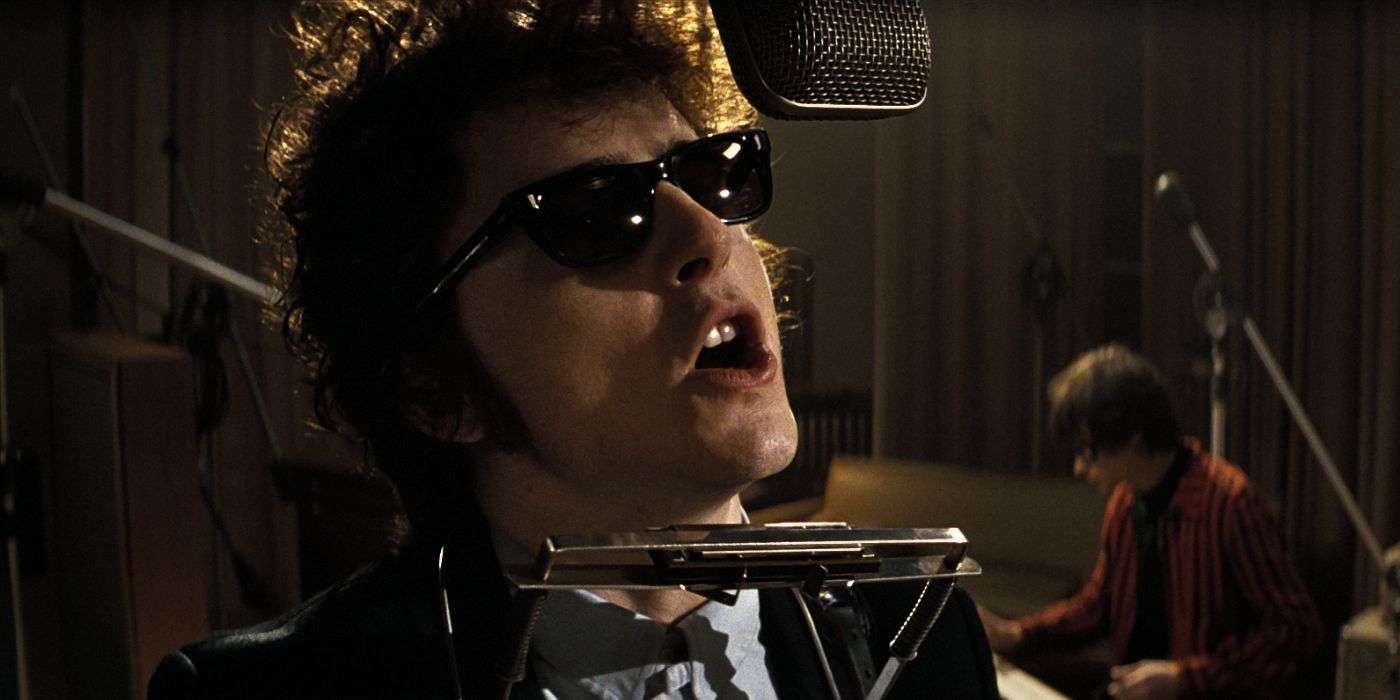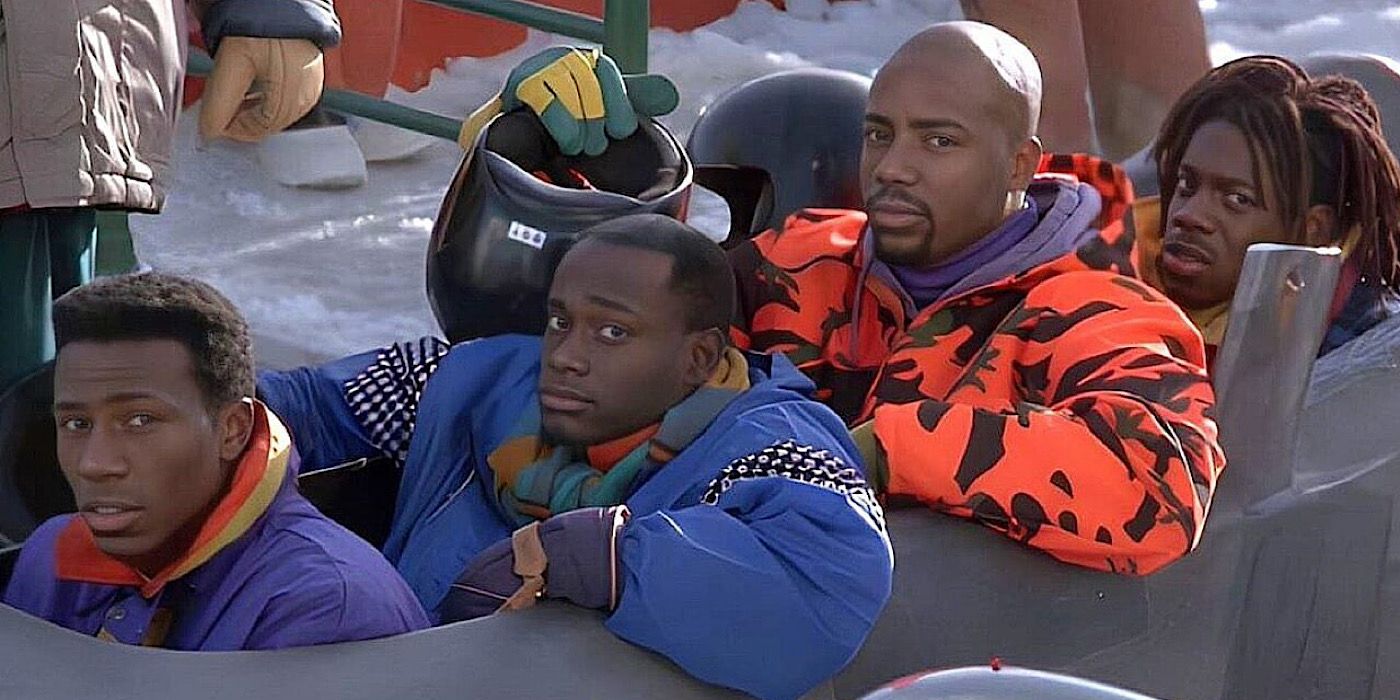Greg Laurie (Joel Courtney) meets Pastor Chuck Smith (Kelsey Grammer) at the dawn of a Christian hippies revival in the early seventies.
Lionsgate
An era of sex, drugs, and rock ‘n’ roll spawned a Christian religious revival that swept America in the early seventies. Jesus Revolution tells the uplifting true story of a young Greg Laurie, his desperate search for meaning, and the altruistic pastors that helped launch a spiritual awakening. Faith-based and devotional films are often maligned in cinema. A proselytizing approach steeped in moralism warrants criticism; but a thoughtful expression of humanity and our need for belonging deserves to be seen.
In 1970 Southern California, a reporter (DeVon Franklin) observes a group of teens joyously baptized in the sea. He asks Greg Laurie (Joel Courtney), a local student, what brought him to witness such a public rebirth. A year previously, Calvary Chapel Pastor Chuck Smith (Kelsey Grammer) watches attendance reduce to a trickle. Pews were empty. The stalwarts who attended were rigid, judgmental, and lacked compassion. Chuck’s world is upended by an unexpected visitor.
Chuck & Lonnie’s Gospel
Janelle (Ally Ioannides), Chuck’s teenage daughter, brings a long-haired, bearded hippie home. Lonnie Frisbee (Jonathan Roumie) appreciated the ride and invite for dinner. He didn’t drink, smoke, or have any desire to turn on, tune in, and drop out. Lonnie preached Christ’s gospel to anyone who would listen, needed help, or a shoulder to lean on. A mesmerized Chuck invites him to stay. The parade of Flower Children that followed Lonnie weren’t a nuisance Chuck. Calvary Chapel, much to the chagrin of its current flock, overflowed.
Related: Jesus Revolution: Plot, Cast, Release Date, and Everything Else We Know
Meanwhile, Greg yearns to escape his military academy and alcoholic mother (Kimberly Williams-Paisley). He’s smitten by the beautiful and vivacious Cathe (Anna Grace Barlow). Her cool friends were basked in hedonistic partying. But that lifestyle proves to be detrimental and dangerous. Greg remained as lost as ever. Fortunes change when Cathe invites Greg to try something different. He scoffs at her invitation to attend prayer at Calvary Chapel.
Belief in Acceptance
Lionsgate
The “Jesus Revolution” refers to a Time Magazine 1971 cover story. The film is adapted from Greg’s book about the experiences that led to his adoption of Christianity. The sixties were a tumultuous period. Those coming of age in the wake of assassinations, race riots, and war faced uncertain futures in a dark time. Lonnie and Chuck believed in acceptance. They welcomed all to their faith with kindness. Greg and Cathe’s journey led them to a place of true belonging. What was empty became full. They discover a higher purpose that sets the course of their lives.
Jesus Revolution takes soap opera-esque turns when human weakness arise. Lonnie and Chuck, Greg and Cathe, their families, it’s not all hugs and prayer. Power, greed, jealousy, the usual corrupters, stoke division and animosity as the church grows exponentially. There’s a tad of hokey melodrama but not enough to detract from the film’s heartwarming message.
The Movement Thrives
Let’s be clear. Jesus Revolution extols Christianity as the answer to fulfillment, but doesn’t beat you with a Bible into submission. The Calvary Chapel religious group has thousands of churches and millions of congregants. Christian rock resulted from Lonnie and Chuck’s concerts. I am an atheist but can appreciate others who’ve found happiness in their faith. Jesus Revolution artfully depicts the beginning of a movement that continues to thrive today. I see so much ugliness, hate, and violence on screen. It was a pleasure to leave the theater with a smile and sense of community.
Jesus Revolution is a production of Kingdom Story Company. It will have a theatrical release on February 24th from Lionsgate.
You can view the original article HERE.




















![Tom Hardy & Guy Ritchie’s ‘MobLand’ Crime Drama Lands [X] Rotten Tomatoes Score Tom Hardy & Guy Ritchie’s ‘MobLand’ Crime Drama Lands [X] Rotten Tomatoes Score](https://static1.moviewebimages.com/wordpress/wp-content/uploads/2025/03/tom-hardy-in-guy-ritchie-s-mobland.jpg)






:quality(85):upscale()/2025/04/01/828/n/1922564/9432574867ec361a713285.06370027_.jpg)


